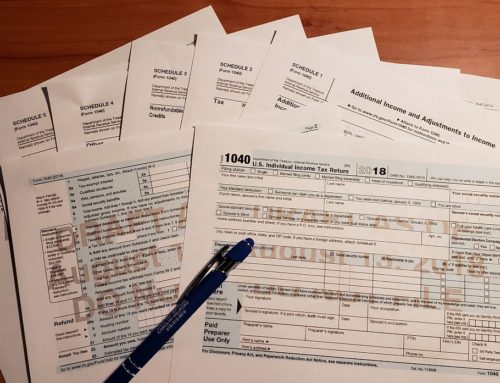Tax season is here, and the time is now to start preparing your records to maximize your deductions. The important thing is to identify which deductions you can take and what records you need to keep. If this is your first year as a real estate agent, the following tips will help you with your first year’s taxes. Whether you do them yourself or you have a tax professional do them, the key is to know which ones are important to you.
Almost everything you buy for your real estate business is tax deductible if it is ordinary and necessary and the cost is reasonable. The following deductions will save your business money!
- Car Deductions: The single most claimed tax deduction for all small businesses is car and truck expenses. The cost of all driving you do for your real estate business, with the important exception of commuting to and from your home to work, is tax deductible. If you like recordkeeping, you can keep track of all your car expenses to figure your annual deduction. But, if you’d rather not keep track of how much you spend for gas, oil, repairs, car washes, and so forth, you can use the standard mileage rate. (53.5 a mile).
When you use the standard rate, you only need to keep track of how many miles you drive for business, not how much you spend on your car. You must keep accurate records with the mileage to and from and with whom you had your business with. You will need to keep track how many miles were used for personal use. If you are driving more than 10K miles in a year, this option would provide you with more of a deduction. (Just a note, you must choose to use the standard mileage rate for the first year you claim your car, then in later years you can change to actual mileage expenses if you want. If you choose actual expenses in the first year, you continue with actual moving forward.)
- Office Expenses: The amounts you spend on your business office are deductible business expenses. Office supplies, stationary, paper, equipment etc. For example, you may deduct the rent and utilities you spend for an office. But, if you work at home, you may be able to deduct the cost of your home office. This deduction is particularly valuable if you are a renter because it enables you to deduct a portion of your monthly rent, a sizable expense that is ordinarily not deductible. If you purchase office furniture and equipment, you can be expensed in full, or you can deduct the amount over time.
- Computer equipment and software: The cost of purchasing new computer equipment for your business, such as laptop, router, printer are all items you will be able to write off on your business. You can deduct them over time with depreciation or take the full amount off. You can also deduct any software you might need, such as QuickBooks Self-Employed (this is great to track expenses), virus software, office professional and more.
- Home Office Deductions: If you have a dedicated area to your work you qualify for a home office deduction. You can select the simplified deduction of $5 per square foot up to 300 feet ($1,500 max) or you can use the regular method.
You would take the square footage of the home and divide by the square footage you are using to get the percentage. (1200 sq. ft. /300 sq. ft. = 25 percent) You can take all 25% of utilities, rent, internet and phone (for phone, you have to have a separate line for business in order to take the deduction) for your monthly deduction. If eligible you can take a depreciation deduction on your home, mortgage interest etc. If you have a large home office, and the area expenses are higher, this might yield you are larger deduction per year.
- Marketing and Advertising: Real estate agents that want to be successful typically invest in marketing and advertising. Materials like flyers, brochures, business cards, signs, ads in the newspaper, social media advertising. These are deductible, including design services, internet expenses, hosting fees, search engine marketing and more.
- Meals and Entertainment: The days of the deductible liquid lunch are pretty much at an end. To deduct the cost of a meal in a restaurant or an entertainment event like a baseball game or theater visit, you must have a serious business discussion before, during, or soon after the event.
Moreover, you may only deduct 50% of your business meal and entertainment costs. You must keep good and accurate records of your meal and entertainment expense. If you were audited, you would want to be able to provide who, what, when and why to IRS as to why you took that deduction.
- Business Travel: You may also deduct your expenses when you go out of town for your real estate business. These include airfare or other transportation costs and hotel or other lodging expenses. But, you may only deduct 50% of the cost of meals when you travel on business. If you plan things right, you can even mix pleasure and business and still get a deduction. You can deduct only the expense associated with business.
- Depreciation: When you buy property for your business that will last more than one year, you may deduct the cost a little at a time over a period of years. This process is called depreciation. Examples of depreciable property include cars, computers, and office furniture. However, you don’t always have to depreciate long-term business property.
Small businesses have the option of deducting the entire cost of such property in a single year under Internal Revenue Code Section 179 or using bonus depreciation. This enables you to get a big deduction in a single year rather than spreading it out over several years. See Section 179 Tax Deduction Limits for more information on this valuable deduction.
- Legal and Professional Services: You can deduct fees that you pay to attorneys, accountants, consultants, and other professionals if the fees are paid for work related to your business.
- Insurance: Insurance you buy for your business is deductible—for example, business liability insurance or insurance for business property. If you have a home office, you may deduct a portion of your homeowner’s insurance. Self-employed people are also allowed to deduct 100% of their health insurance premiums from their income taxes.
- Dues and subscriptions: You can deduct any professional dues related to your business, professional magazine or association subscriptions. Annual fees, MLS dues are also deductible.
- Licenses and training: With your industry rapidly changing you want to ensure you stay on top with professional training. You can deduct the fees to renew your professional licenses, trade shows, conferences, coaching and the cost of training to keep up those licenses.
- Desk Fees are a deductible expense if you decide to go that route instead of a home office. You cannot take both deductions. If you chose Desk Fees, you will still be able to write off any of your office purchases and supplies.
The most important thing is to keep accurate and detailed records of all your deductions and auto mileage.
As always, your comments or questions are always welcomed.
Thank you for reading my post.
Carolyn





